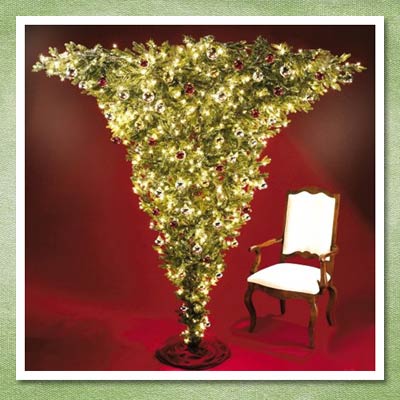
Grant Swart
As the years have passed, the “festive” or holiday season, which includes Christmas day, has become a commercialized farce, along with other similar secular celebrations such as Mothers Day and Valentines Day. The original meaning and “reason for the season” has been replaced with lavish parties, extreme festivities, entertainment and expensive gifts. While there is nothing wrong with any of those things, they certainly do not represent Christmas. No longer is it “the thought that counts”, rather the value of the gift which apparently demonstrates the level of affection one has for the recipient. Rarely is the birth of our Saviour brought into the picture on Christmas.
There is a war being waged on the traditional Christmas by the secular world, atheists, legalists and followers of false religions. “Merry Christmas” is being replaced with “Seasons Greetings” or “Happy Holidays”. This, of course, is being done in an attempt to promote a religiously tolerant society with the will, values and rights of man as the central focus. All the while, the battle for your bucks in the countdown of shopping days to Christmas rages on.

It was Santa Claus did it!
Back to the controversial issue among many Christians, which is the partaking or avoidance of Christmas celebrations.The debate as to whether or not Christians should celebrate Christmas on December 25, or any other date for that matter, has been raging for centuries. There are sincere Christians on either side of the debate, and many reasons as to why or why not Christmas should be celebrated by Christians.
One argument against Christmas is that the traditions have origins in paganism. Another argument is that the Bible forbids Christmas trees, and the passage in Jeremiah 10:1-16 is cited as biblical disapproval, even though that passage has no relevance to Christmas or Christians. Some regard the fact that the Bible gives no indication as to the birth date of Jesus as reason enough not to celebrate the day on December 25. Others, on the other hand, regard the fact that the Bible is silent on the issue as tacit approval by God over the celebration issue. Some say that because the world celebrates Christmas, Christians should avoid it. And so, on and on the arguments pro- and anti-Christmas are cited.
As in all things we should prayerfully seek guidance over the matter of Christmas, particularly if it is a divisive issue for the Christian family. Also, pray for God’s mercy to fall on those who will not have a morsel of food, a drop of water or who will have to fight for their very life as children of God, on the day that the rest of the world goes shopping and tolerates undisciplined, screaming grandchildren demanding more expensive toys, while mommy pays little attention and excitedly types a message to her virtual friends on her cellphone while in the shopping mall.

Should someone stop the abuse of the Christmas tree?
Should Christians argue over the exact date of the birth of Jesus Christ? Should Christians ban Christmas trees and decorations from their lives, should they merely be tolerated, or maybe even embraced? What should the Christian’s attitude be toward those who make much of celebrating the most famous holiday in recorded history? Is Christmas to be regarded as solely a pagan institution and therefore to be avoided? Should we accept the fact that, although the origin might have been in numerous false religious traditions, due to the subject and focus of the Christmas day having shifted to a celebration of the birth of Jesus Christ, we should re-think our attitude toward the tradition?
Are there certain Christmas traditions which are acceptable, while others are taboo for the Christian? Or, should Christians pay no attention at all to the goings-on at that time of year and try to ignore the undeniable influence it has on everyone’s life? Should the church speak out in opposition to the celebration of Christmas, or should the church quietly partake in it while bearing in mind that the day itself has no spiritual meaning above any other day? Is celebrating Christmas a decision which should be left to the individual?
What form should a church service take on Christmas day, and if it doesn’t happen to fall on a Sunday, should there be a special service held at all? What would be the appropriate message to be brought to the people gathered there?
If Christians are to avoid taking any part in Christmas celebrations, then similarly should Christians not also avoid taking part in other celebratory days such as national independence celebrations, New Years day, Thanksgiving, birthdays, etc? As none of these celebrations are Biblical either, why should any of these celebrations be permitted? Does avoidance of these types of celebrations due to religious convictions, rather than because of Scriptural instruction, not amount to Pharisaical legalism and hypocritical self-righteousness?
Does Scripture prohibit the Christian from partaking in a secular celebration? Is Christmas a secular celebration? Is the Christian free to partake in these celebrations as long as they are not idolized? These represent but a few of the questions and concerns of some Christians at Christmas time. Here is, what I regard as a balanced, concise and wise view on the subject: 
SHOULD CHRISTIANS OBSERVE CHRISTMAS?
Without fail, at this time every year, I receive numerous letters, pamphlets, and tracts denouncing the evils of Christmas as a pagan religious holiday. I fully agree that no believer should ever observe pagan religious holidays like Christmas and Easter. We must never incorporate pagan customs into the worship of our God.
We must not observe any religious holiday. We should attach no spiritual, religious significance to any day. Yet, we do not need to act like super-pious religious idiots over a day that has absolutely no religious significance. I would never teach a child that such a thing as Santa Claus exist, or that Christ was born on Christmas day. But, as Paul said concerning idols, Santa Claus is nothing and Christmas is nothing. Did you know that every day of the week, every planet in the universe, and many of the cars we drive are named after pagan gods? Yet, we still call Sunday Sunday, Mars Mars, and a Saturn a Saturn. No one would ever dream of calling us pagans for doing so. We worship our God on Sunday, and would laugh at anyone who suggested that we observe the pagan Roman holiday called “Sun’s Day” in doing so. If your car is a Saturn, use it for the glory of God; and laugh at anyone who thinks that you are worshipping the Roman god of agriculture by driving it.
We must not, and I trust do not, worship Christmas trees and lights, or even attach spiritual significance to Christmas day. However, I do suggest that we seize this opportunity afforded us by Divine providence to tell people who Christ is, why he came into this world, what he did, and how they may obtain his salvation. It is no accident that once every year every human being in the world is confronted with the fact that the Son of God assumed human flesh and came into the world to save men.
Certainly, no one can think that it is wrong for believers, during this season of the year, to express thanks and praise to God for his unspeakable gift, the Lord Jesus Christ. It is never wrong, but always right to think of him, speak of him, and sing his praise. Rather than not singing Watts’ grand old hymn, Joy To The World, we ought to sing it year round.
While I loathe the religiosity of this holiday season, the silly plays, the idolatrous pictures and representations of Christ and the angels of God, and pretense of spirituality by people who have no interest in the glory of God, I am delighted for this season of the year (for any season) that brings families together, encourages kindness and good will, and promotes thoughtfulness of and generosity to others. It is perfectly all right to exchange gifts with and send cards to family and friends. (I cannot imagine a reason for anyone objecting to that!) But I suggest that each of us find a way to acknowledge and do something special for someone from whom we expect nothing, maybe even from someone from whom we expect abuse. “Remember the words of the Lord Jesus, how he said, It is more blessed to give than to receive.”
******************
With kind appreciation to Donald S Fortner for the use of the short article “Should Christians observe Christmas”